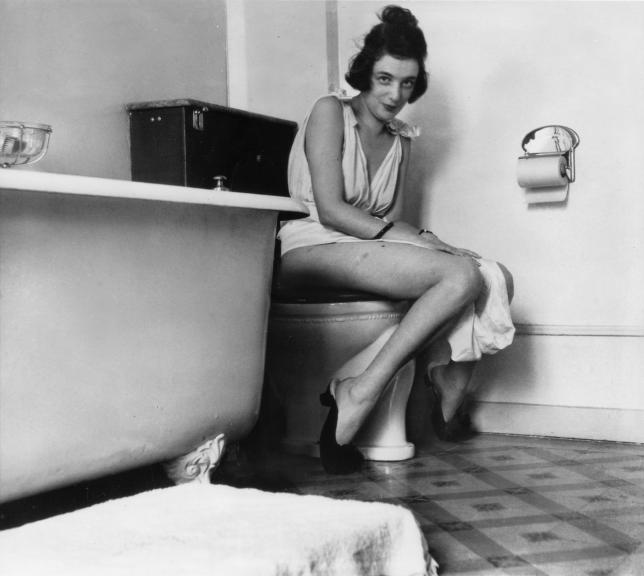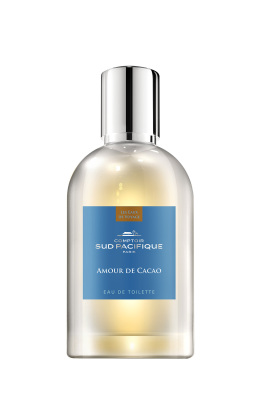What a Perfume Can Teach You About Love {Scented Thoughts}

Voyage de noces à l'hôtel des Alpes © Jacques-Henri Lartigue
It might be overly ambitious to start a treatise on love as experienced through our interactions with perfume. A more modest attempt would be to recount how a most detested perfume can turn into a loved one and what this can teach us about the appreciation of perfumes - and a little bit about love too.
What you need is time and letting go of the will...
In other words, fragrances have something to teach us about preconceived aesthetic and moral judgments and can help us grow up to be slightly different versions of our selves, to the point where one day, what we hated becomes what we love. This means that some scents have the power to change us or reveal us to ourselves.
Hate, it is a well-established psychological fact - is closer to love than like or indifference; if a blend of aromatic molecules can provoke such a strong reaction in us so as to reject a scent outright, discard it, want to trample it back into the abysses of non-existence - the trash can - then maybe that perfume is saying something about your pre-conceived self and taste.
In perfumery appreciation, it is very important to work with time. It is not always possible to do so given the constraints of our daily lives and the fast pace which rhymes our existences, but it is, in fact, the indispensable ingredient to developing our intimate relationship with a perfume. Most of the time we speed-date with perfume when we should be letting it be itself and see how it blooms on its own. Ideally, we should let fragrances grow on ourselves. It is quite challenging to do so, especially nowadays as it is much more fashionable to be like the Don Giovannis of olfactory exploration.
But I always remember the wise habit that the father of modern perfumery, François Coty, had. He let a perfume rest for 6 months - and I don't mean macerate longer in a cuve - but the final product had to be time-tested against his evolving judgment and states of consciousness. After 6 months, he felt comfortable that his judgment had enough critical distance and was stable enough that he was not deceiving himself, and his future customers.
It can be argued that the most precious ingredient of perfumery is time. There is so little of it, even for perfumers; especially for perfumers. Yet, a perfume connoisseur can manage to re-inject more of that ingredient into her or his perfumes.
I want to recount an anecdote which happened to me, and then I'll propose a practical version of the letting-go approach to perfume appreciation.
 I usually cultivate being broad-minded about the diversity of perfumery. There are few fragrances that provoke a strong negative reaction in me, especially one that I do not understand. But that is what happened with a very, non-threatening smell contained in a bottle, Amour de Cacao - as it is, how appropriate for a Valentine's Day post - by the French company Comptoir Sud Pacifique. On the surface of it, there is nothing there special enough warranting you write home about it. It's a chocolatey perfume - cacaoty and dusty to be more precise - and many of the perfumes from this brand are gourmand, pleasing, sexy and appreciated as such.
I usually cultivate being broad-minded about the diversity of perfumery. There are few fragrances that provoke a strong negative reaction in me, especially one that I do not understand. But that is what happened with a very, non-threatening smell contained in a bottle, Amour de Cacao - as it is, how appropriate for a Valentine's Day post - by the French company Comptoir Sud Pacifique. On the surface of it, there is nothing there special enough warranting you write home about it. It's a chocolatey perfume - cacaoty and dusty to be more precise - and many of the perfumes from this brand are gourmand, pleasing, sexy and appreciated as such.
From the get-go however, I couldn't stand Amour de Cacao. I detested it. It smelled plastic-like to me. It smelled disagreeably of "fake chocolate". I wondered how such cheapness had come to be bottled. I nearly threw away my sample but it landed on a shelf instead which was in a strategic position so that as the weeks passed I would catch a sniff of that scent occasionally and continue to shrug my shoulders at it. Somehow, I must have known instinctively that a visceral reaction needs an explanation, an answer at some point in time.
One day, suddenly, I caught a waft and it was delicious, subtle and delectable - as I write this, I experience phantosmia, smelling the perfume while it is not there. I decided to smell the fragrance again up-close, just in case, since it was there and I was curious to understand again how it could be so disgusting. Perhaps the scent had mellowed a bit, but the composition was recognizable; it hadn't changed. What had changed however drastically was my perception of it. It was suddenly quite the reverse of what I had initially thought. I loved the perfume and thought it smelled irresistible! It has a note of Star Fruit - In French, we use the beautiful word "Carambole" - which adds something exotic to the blend. It is a wholly satisfying oriental more sophisticated than it appears to be. It is sexy and comforting, all at once. It has a soft spiciness that makes it stand out. I still have no idea why there was a turnaround like that but I learned that day that you can come to love a perfume which you were ready to trash. It took me three months to come to that realization. I was glad I had not incinerated the sample because otherwise I would have never known and would be caricaturing myself as an Amour-de-Cacao hater.
Without lying down on a couch, I can see that an important fact was that I was not in voluntary mode anymore. I was not going towards the perfume. Therefore, the perfume had to come to me. And a fragrance can do that, because it is a volatile thing and it is built to have a sillage, most of the time.
If we let our most hated perfumes puff out little bits of sillages over the weeks, it is well possible that you will experience the same turnaround I did. It is however not very practical to do so. What I recommend doing however in one of the stages of discovery of a fragrance - and this may seem paradoxical to you - is to spray on your perfume and not think about it anymore. Forget about it. Don't even think about perfume. Think about your other passions. And see if the perfume will speak to you, inadvertently, in spite of you. See if the perfume has the capacity to thug at you by the sleeve. Also, since there are not that many fragrances to which we have a forceful negative gut reaction, you can select those ones and leave them somewhere where you can go back to them from time to time.
It is a way of respecting the personality of the fragrance - if it has one - not adding your undue expectations on top of it. It is the difference between listening to a perfume and arguing with it. I think that not all perfumes merit this treatment but if you sense that there is substance to a fragrance composition, if it annoys you particularly jarringly, this is one of the best ways to learn to love a perfume - because you're that close to that other extreme and to learning more about yourself.
And now you can see the parallel better between love and perfume and what perfume can teach us about love. Don't speed date it; don't romance it either; just let it express itself.
Happy Valentine's Day!








